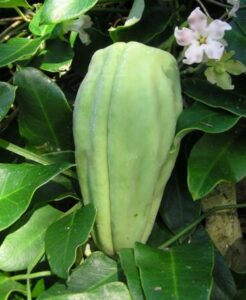
A recent report has indicated that New Zealand’s battle against harmful weeds falls short in a national-level plan or strategy.
Simon Upton, the Parliamentary Commissioner for the Environment, completed a stocktake in November 2021 of NZ’s approach towards exotic plants that threaten to overwhelm the country’s native ecosystems.
“Like so many others, I have come to the realisation that we face a burgeoning problem and one that never pauses,” Upton wrote.
Between 2006 and 2020, at least 70 more exotic plant species shifted from the wild to being naturalised (establishing a home on foreign soil).
Naturalised plant species make up 44 per cent of NZ’s vascular [tissues which distribute nutrients through the plant] flora today.
The impact of weeds can have on “our system ranges from competing or hybridising with native plant species to promoting fire, alerting hydrology and causing over-enrichment of nutrients”.
These consequences are a threat to particular native species.
“They are called weeds because they have become so invasive due to thriving in NZ’s climate, then they take over and smother other trees and bush,” Lorelle Stranaghan, co-ordinator of Pest Free Howick Ward (PFHW), says.
The arrival of humans has caused an ongoing echo of ecological upheaval that unleashed itself onto Aotearoa’s ecology, Upton states.
“Of the roughly 25,000 exotic plant species that have been introduced to NZ by humans, fewer than 10 per cent have to date naturalised,” Upton said.
“But is it only a matter of time before they are joined by others.”
It is likely to intensify as climate change and land use change continues.
In his analysis of New Zealand’s battle of the silent invaders, he concluded that New Zealand lacks a national-level unambiguous plan or strategy for managing weeds.
Central and local government’s efforts at managing weeds hits varying levels of success, Upton says.
“Aotearoa is fortunate to have a large number of passionate individuals, landowners, kaitiaki hapū, iwi and community groups willing to devote their time and effort to protecting native species and biodiversity,” Upton said.
“While some groups are entirely self-sufficient, many depend on external partnerships and grants for survival. Much of this support comes from local and central government.”
One of these groups is Pest Free Howick Ward.
With a devotion to eradicating the Howick Ward from pests (plants and animals), the Local Board-funded project has engaged in a number of actions and initiatives to achieve this goal.
The PFHW conservation assistant team work together to regularly remove pest plants on public land and, in some circumstances, can assist with private land.
Their moth pod plant competition, launched yesterday, is open to all Howick Ward schools and their students to collect moth plant pods, cut the vines and pull small vines from the roots.
Their public weed bins are available (May 6 to 8) for locals to bring their Rhamnus and Moth Plant weeds and swap for a free native plant for their garden. The plant swap event will be on May 7 from 9am to 12pm.
“Every effort helps,” conservation advisor for PFHW and Auckland Council Niklas Erikson says. “It’s not a one-hit job. It’s all a collaborative effort.”
Erikson says that “everyone’s helping”.
PFHW encourages everyone to start with their own backyard for pest trapping and pest plant identification. “Then together we can work on public spaces.”










